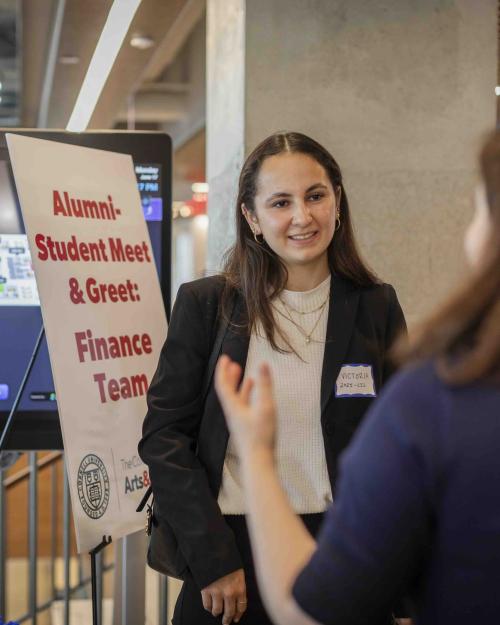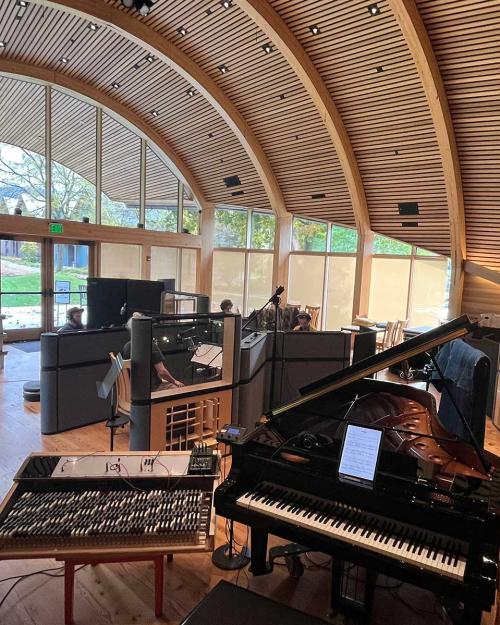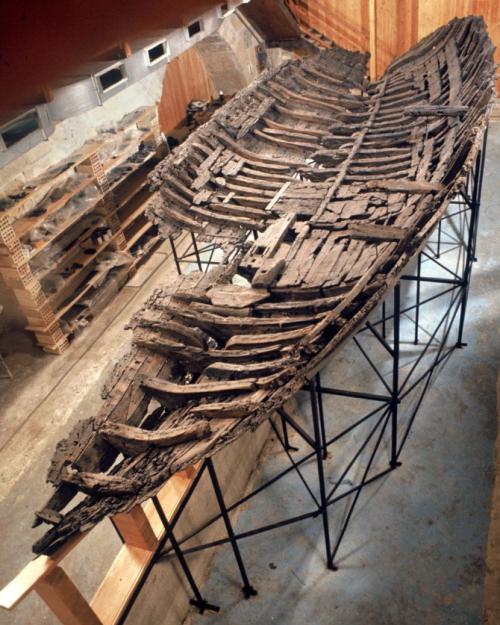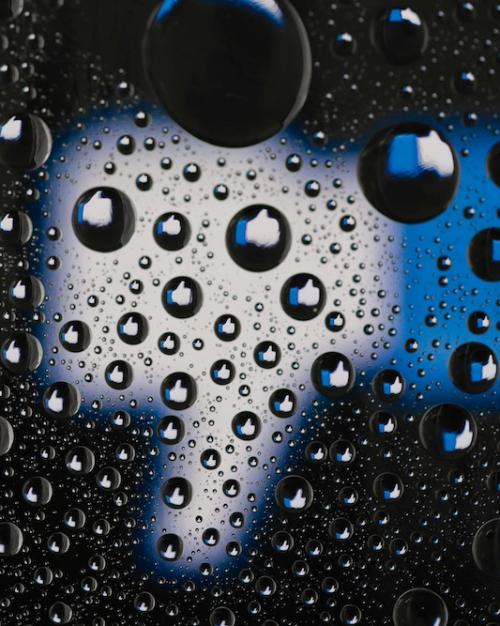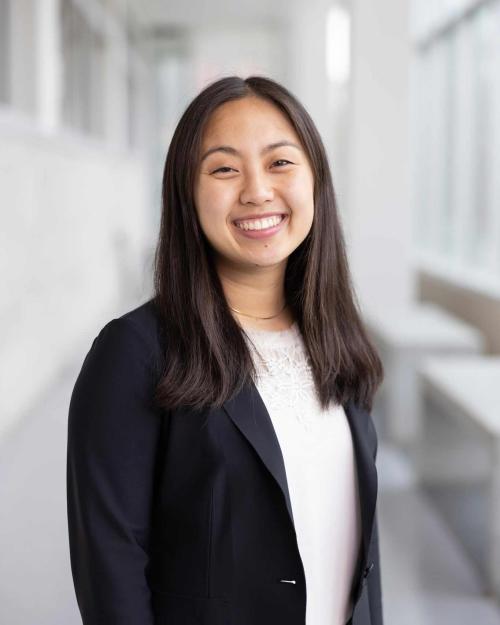Valerie Hu
Biology & Society
Sunnyvale, Calif.
What is your main extracurricular activity and why is it important to you?
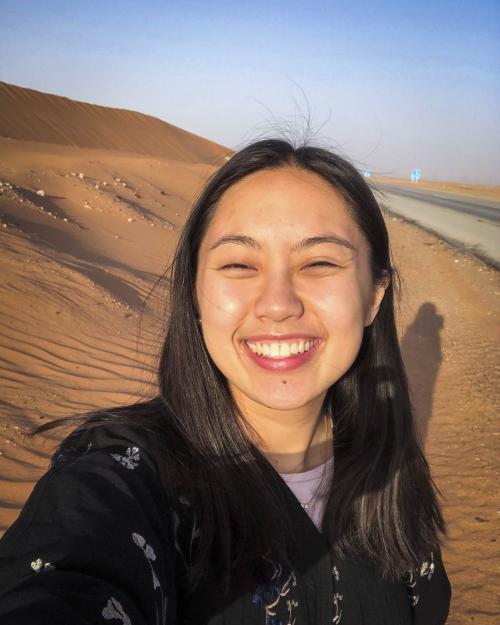
When I came to Cornell, I knew I wanted to get involved in initiatives that aligned with my personal values of justice and mercy and served a community beyond the one on campus. I joined the Parole Preparation Project (now Cornell University Parole Initiative) and began working with an incarcerated person in preparation for a Parole Board hearing that determines whether he can be released on parole. Along with two other student volunteers, I liaised with community partners to establish a plan for re-entry, gathered various legal and medical documents for the parole packet, and met regularly with the parole applicant in a maximum-security correctional facility to practice for his hearing. Three and a half years later, I now consider the incarcerated applicant I work with not only a teammate and coworker, but also a friend. Through working together, we have found common ground in the pursuit of justice, the importance of family and the role of faith and prayer in guiding our lives. This year, I became a teaching assistant for the Cornell Prison Education Program, going to Auburn Correctional Facility once a week to teach incarcerated students within a French club and an anthropology course, which has allowed me to explore my interests in the intersection of education and incarceration. Due to Cornell’s resources and investment in community engagement, I had the unique opportunity to work within facilities that reveal the immense inequalities in America’s criminal legal system and to play a role in working toward a more equitable world.
What Cornell memory do you treasure the most?
The Cornell memories I treasure the most are the evenings I’ve hosted potlucks or dinners with large groups of people at my apartment because they embody the best parts of my time at Cornell: community and bringing people together. I’ve invited close friends and acquaintances from my classes, faith community, work and clubs, many of whom do not know each other and otherwise wouldn’t cross paths, and new friendships have been formed. On these evenings, my kitchen and living room are full of conversations and laughter, and the area sometimes gets so warm because of the number of people that we have to open a window even in the winter, while we share food and discover unlikely common ground.
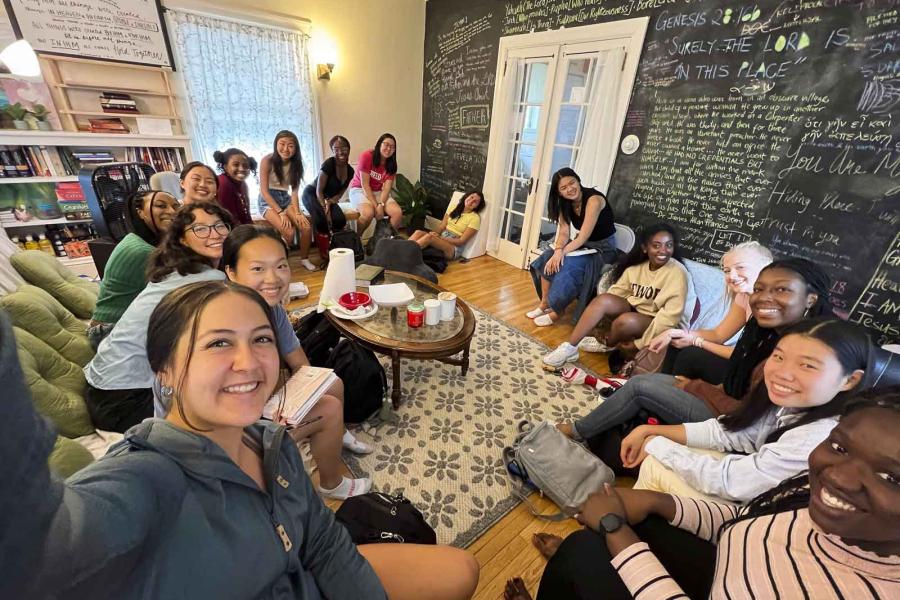
What are the most valuable skills you gained from your Arts & Sciences education?
I learned how to critically examine the things I see and learn, rather than take them at face value and accept the status quo. I came into college accustomed to the type of learning that consisted of knowing facts and successfully regurgitating them on a test or essay. My eyes were opened to the beauty of academic discourse and debate in one of my first classes at Cornell. For each class topic, we read multiple scientific articles that built upon each other or disagreed with one another. As we discussed the strengths and weaknesses of each scientist’s research findings, I developed critical thinking and analysis skills. I learned not to take at face value every piece of information I am given within the context of a classroom, but gained the courage and confidence to challenge and critique other viewpoints while developing my own.
What have you accomplished as a Cornell student that you are most proud of?
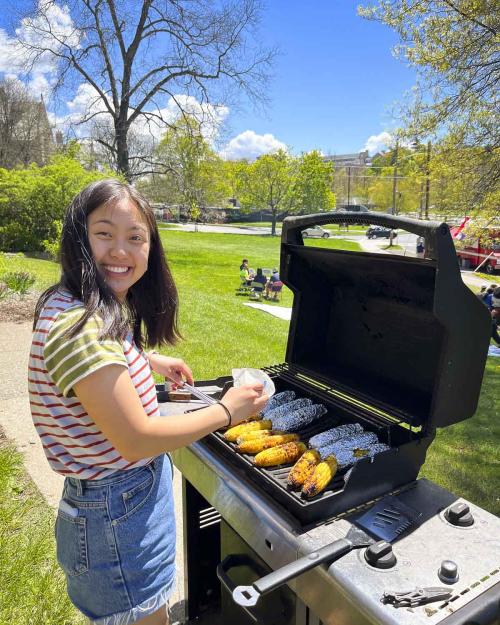
While working as an investigator at the public defender’s office in D.C., I wondered about a paradoxical observation I made: that people who have had negative experiences with the police seem to call the police a lot. At the beginning of my junior year, I had the opportunity to turn that curiosity into a semester-long research paper for Professor Joseph Margulies’ Crime and Punishment class. I began interviewing young people who have had negative encounters with law enforcement about times they have called the police. The class project evolved beyond the semester into an independent study, and eventually into my senior honors thesis. I’m most proud of my research because I learned that a small seed of curiosity can grow and mature into a full-fledged thesis project. Through my thesis, I’ve been able to combine my interests in social justice with academic pursuits, and I learned how to conduct research that has implications for public policy and social change.
Who or what influenced your Cornell education the most?
Cru has undoubtedly influenced my Cornell education more than anything else. I came into college with an abundance of questions about meaning and purpose, both generally and personally. Through the Cru community, I have become close friends with people from so many more backgrounds, cultures, and life experiences than I thought possible. Together, we have wrestled with difficult and existential questions. The diverse set of friends offering input and encouragement has been invaluable to my growth, as I figure out who I am and why I’m here. We have also supported each other through some of the most challenging times of sorrow and loss that tested the strength and genuineness of our beliefs. The Cru community has taught me to be resilient in the face of difficulties and to find hope in something bigger than myself. I learned how to allow my personal values to fuel every pursuit —academic, extracurricular, spiritual and personal — and every moment of my life, from the biggest highlights to the utterly mundane.
Every year, our faculty nominate graduating Arts & Sciences students to be featured as part of our Extraordinary Journeys series. Read more about the Class of 2024.
